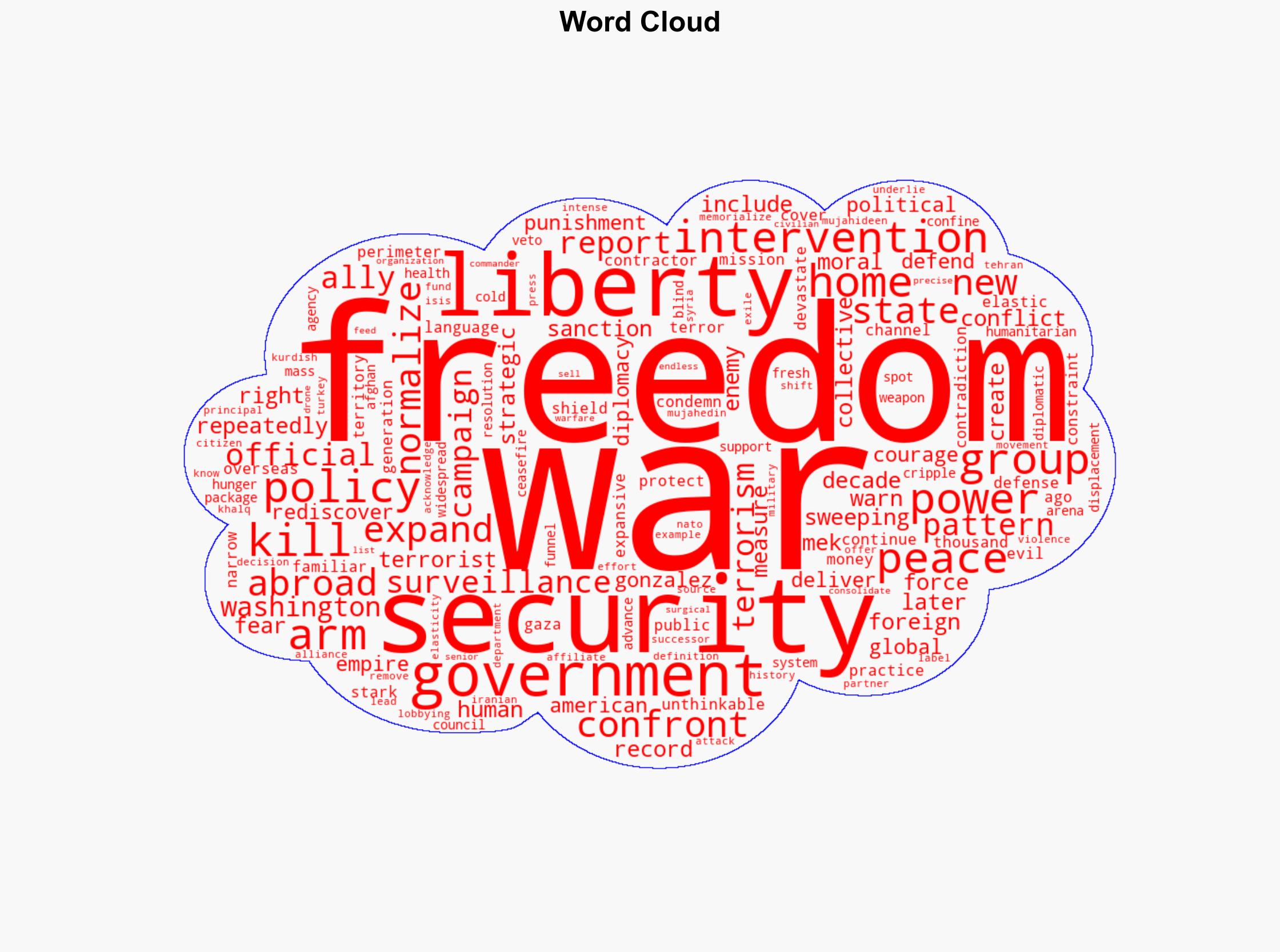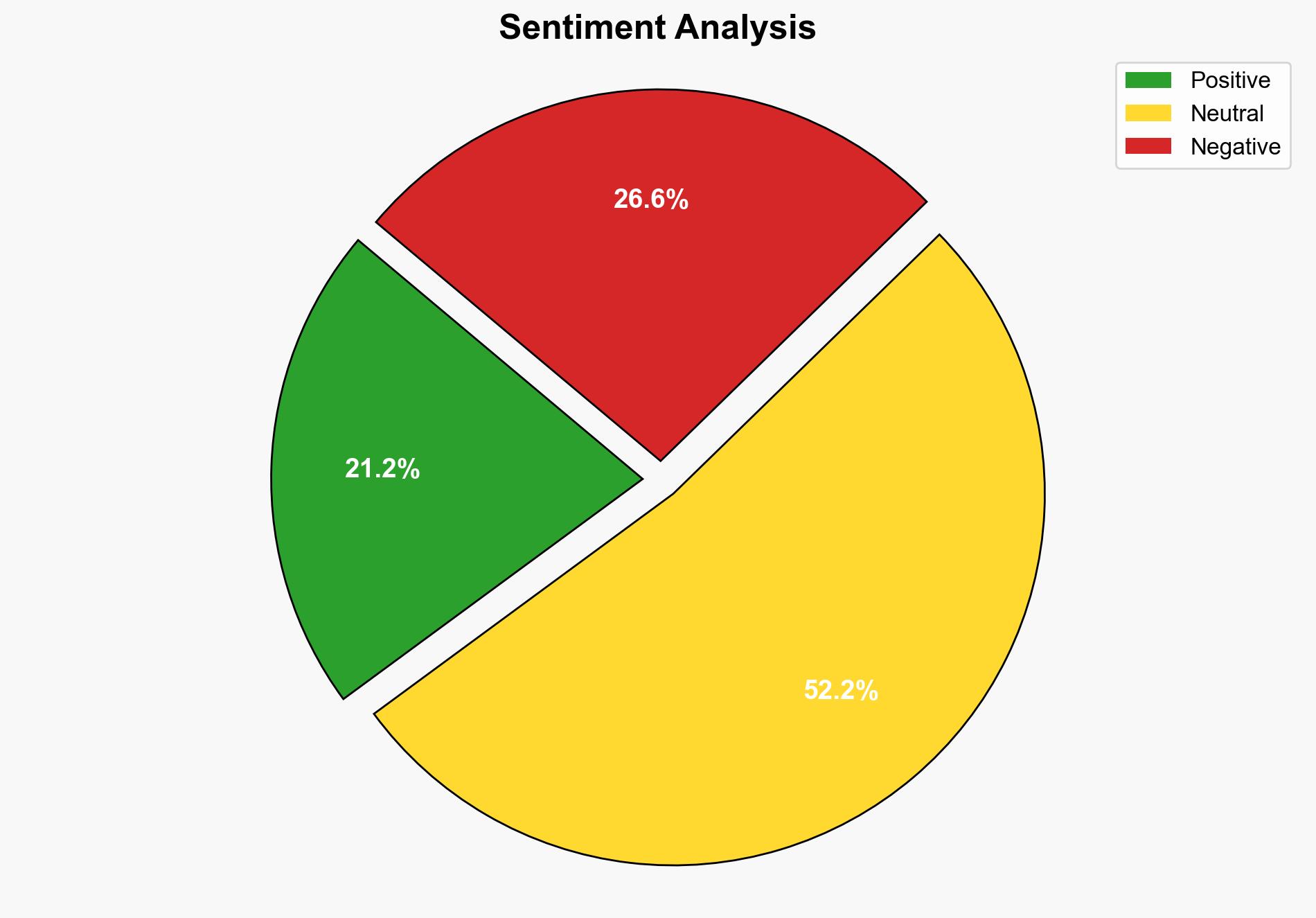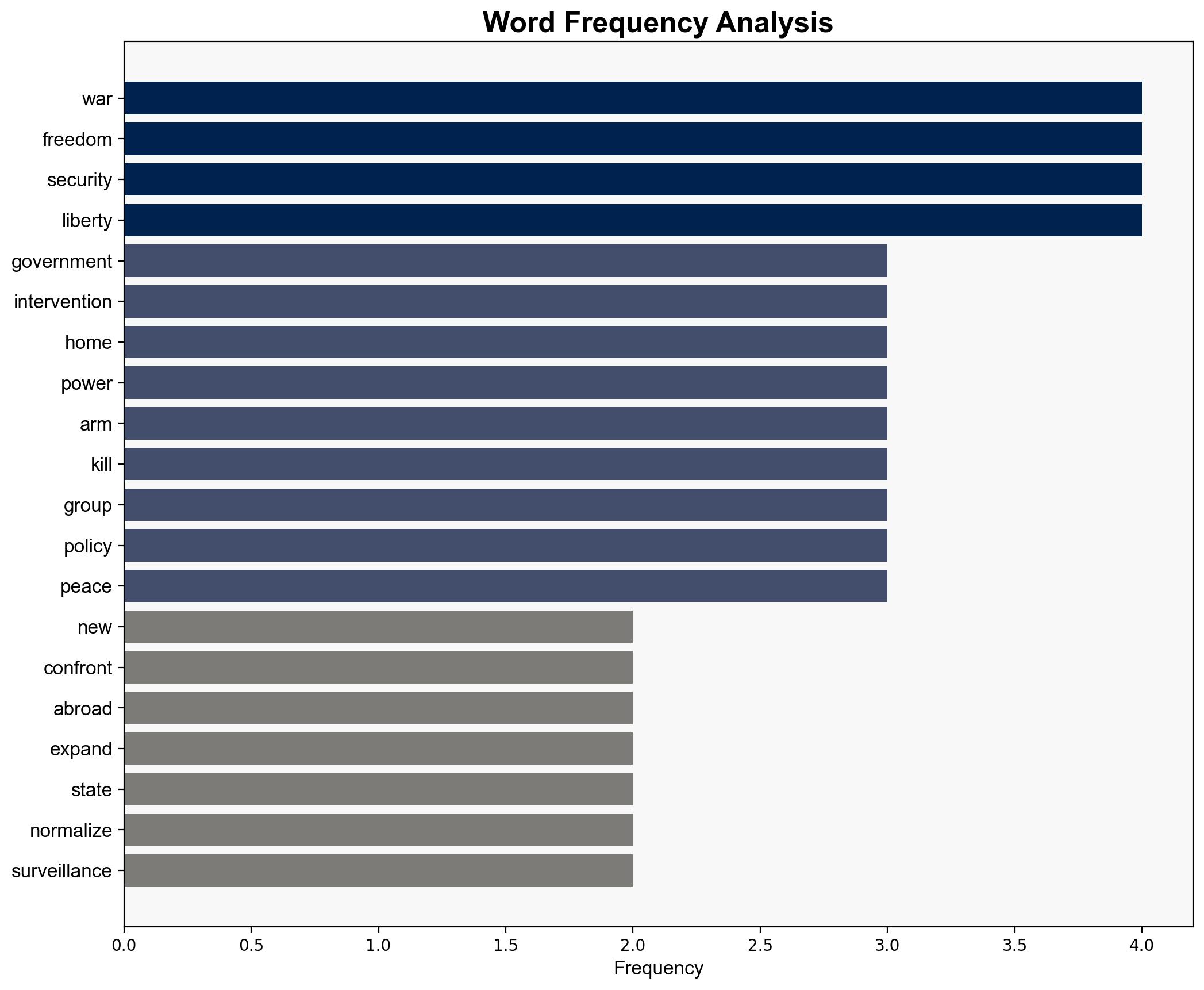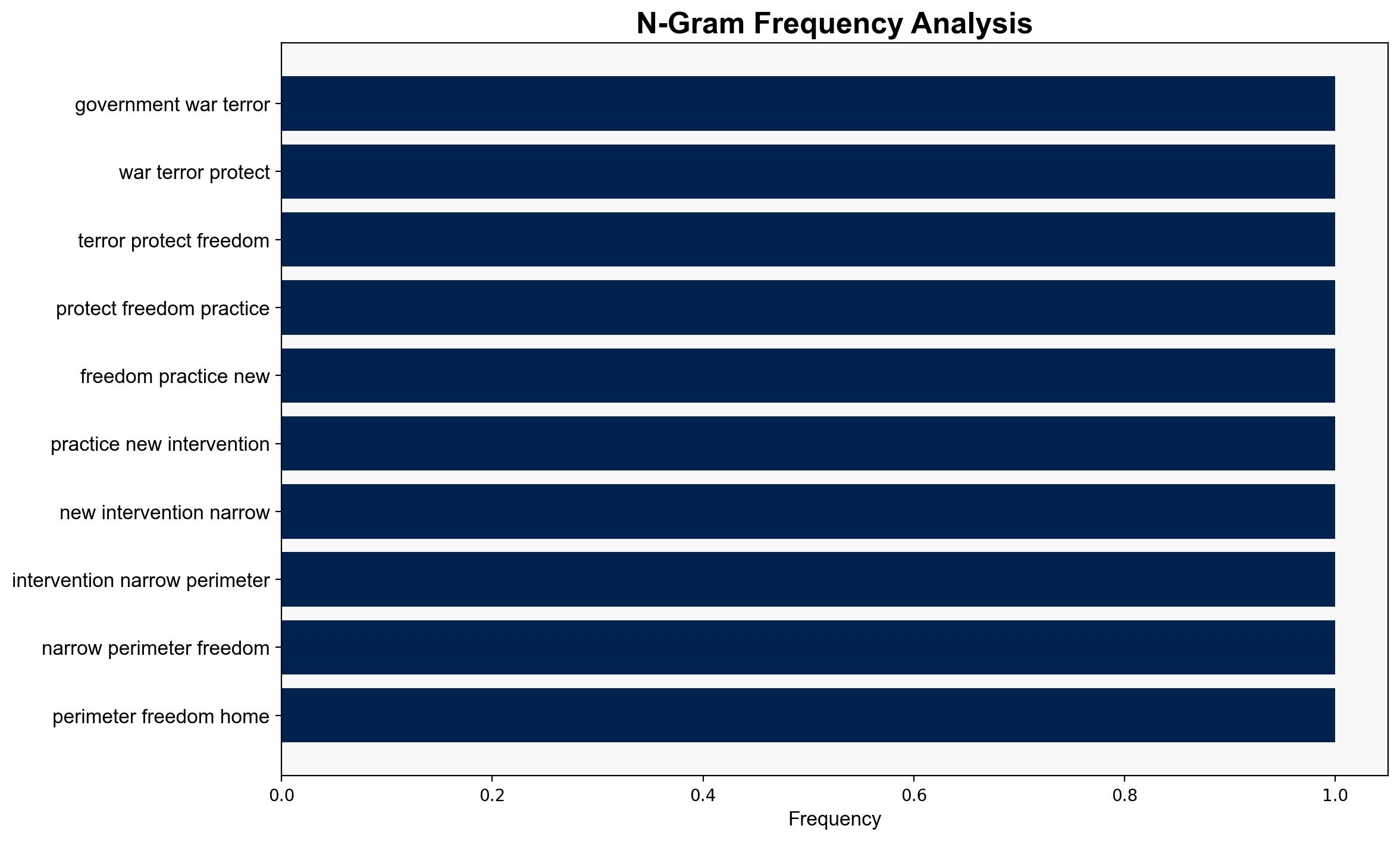Washingtons Double Standard on Terrorism Betrays the Spirit of Liberty – Antiwar.com
Published on: 2025-11-07
Intelligence Report: Washington’s Double Standard on Terrorism Betrays the Spirit of Liberty – Antiwar.com
1. BLUF (Bottom Line Up Front)
The analysis suggests a moderate confidence level that Washington’s foreign policy exhibits a double standard in its approach to terrorism, prioritizing strategic interests over consistent application of principles. The most supported hypothesis is that U.S. foreign policy is driven by geopolitical and economic interests, which leads to selective intervention and support. Recommended action includes reassessing foreign policy strategies to align more closely with stated values of liberty and human rights.
2. Competing Hypotheses
1. **Hypothesis 1**: U.S. foreign policy is primarily driven by strategic geopolitical interests, leading to selective intervention and support for certain groups, regardless of their alignment with stated anti-terrorism objectives.
2. **Hypothesis 2**: U.S. foreign policy inconsistencies are largely due to bureaucratic inertia and the influence of defense contractors, resulting in a reactive rather than a principled approach to international conflicts.
Using the Analysis of Competing Hypotheses (ACH) 2.0, Hypothesis 1 is better supported by the evidence of historical patterns of selective engagement and arms sales, despite contradictory public statements on terrorism.
3. Key Assumptions and Red Flags
– **Assumptions**: It is assumed that geopolitical and economic interests consistently override ideological commitments in U.S. policy decisions.
– **Red Flags**: The potential bias in the source, as it may emphasize anti-interventionist perspectives, could skew the interpretation of U.S. actions.
– **Missing Data**: Lack of direct evidence linking specific policy decisions to defense contractor influence.
4. Implications and Strategic Risks
– **Patterns**: The pattern of selective intervention could undermine U.S. credibility and foster anti-American sentiment, potentially increasing the risk of terrorism.
– **Cascading Threats**: Continued arms sales and military interventions may exacerbate regional instability, leading to broader conflicts.
– **Geopolitical Risks**: Inconsistent policies may strain alliances and embolden adversaries, complicating diplomatic efforts.
5. Recommendations and Outlook
- Reevaluate foreign policy to ensure consistency with stated values, potentially reducing anti-American sentiment and fostering global stability.
- Implement stricter oversight on defense contracts to mitigate undue influence on policy decisions.
- Scenario Projections:
- **Best Case**: A shift towards principled foreign policy enhances global standing and reduces conflict.
- **Worst Case**: Continued double standards lead to increased terrorism and geopolitical isolation.
- **Most Likely**: Incremental policy adjustments with ongoing strategic interests guiding major decisions.
6. Key Individuals and Entities
– **Sophia Gonzalez**: American activist and political analyst, author of the source text.
– **Mujahedin Khalq (MEK)**: Iranian exile group with a complex relationship with U.S. policy.
7. Thematic Tags
national security threats, cybersecurity, counter-terrorism, regional focus





